#ecogrief
Text
"People assume that in the 50 years since the first Earth Day we've made no progress. That we're in a worse position now than we were in the 1970s, that there's no point in environmental action," [...]
Quite the opposite is true. Climate-friendly advances that would have seemed impossible even 10 years ago are now commonplace. And three times in the past 50 years humanity has faced--and fixed--massive, man-made global environmental issues.
The fight isn't won yet, but don't forget that we have made enormous progress.
We would be in a much, much worse position if it wasn't for all the incredible work of environmental activists who came before us, most of whose names and contributions we will never know. They are the reason that we have a fighting chance now, and we owe it to them to pick up their banner and keep running.
#earth day#climate change#environment#global warming#hope#climate anxiety#climate grief#ecoanxiety#ecogrief
1K notes
·
View notes
Note
How can I stay positive regarding the wildfires?
It can be really hard in the face of so much destruction. I don't know how much anyone can specifically stay positive in the face of disasters like this -
but I can give you some thoughts about how to let hope live alongside everything else you're feeling about this, and how to avoid spiraling and remember that this is not proof that we're doomed.
Possibly relevant note lol is that I've lived my whole life in California, so suffice to say figuring out how to move forward among the consequences and destruction of massive wildfires is something I'm definitely not new to.
I remember walking to my classroom in elementary school, about 20 years ago now, and it was literally snowing ash around me. This too shall pass.
Take a few deep breaths. I know it's cliche but it's also important
Zoom out in terms of perspective: Wildfires can make the sky look apocalyptic (like I said, I have lots of experience with this!), but they are regional, and they always end. These wildfires are awful but this specific wave of fires is happening in just one country in a huge, huge world. There's far more land that isn't burning
Canada is about to get substantial international aid in fighting the wildfires - there are already 200 additional firefighters headed over from the US and France, and Canada (Quebec specifically) is also already in talks with Costa Rica, Portugal, and Chile about additional firefighters/resources. Help is on the way and these numbers really will make a big difference, and as the disaster continues (unfortunately it is uh...pretty early in fire season), more help will be sent. People are doing what they can to help, because in the face of disaster, that's what we're wired to do
There are actually MUCH better fire management plans than just about anyone is using, esp in North America but that we COULD implement and increasingly WILL going forward. A lot of the wildfire situation these days is because of the West's incredibly wrongheaded derision toward traditional Indigenous land and ecosystem management practices, including cultural prescribed burns that keep massive wildfires from happening. California in particular is already partnering with several First Nations to revive prescribed burns, to significant success. As fires continue to be terrible, more and more places will get on board with this. We can and will implement practices that will truly change our situation
Cultural burns work because, ironically, the reason for the wildfires is that "is that we've been so good at putting out every fire possible that it has led to overly dense forests and a buildup of burnable material like branches and dry vegetation" that makes wildfires much worse in a number of ways. At lower intensity, however, as with cultural burns, forest fires can actually have huge environmental benefits
Finally, every time a natural disaster happens like this, as awful and destructive as they are, it serves as a wake-up call for thousands of people and adds both ever-mounting urgency and ever-mounting evidence to the importance of fighting climate change, which really does translate into action. For a lot of people, "saving the environment" feels super distant - but you know what feels super immediate? Saving their homes from burning down (or getting flooded or otherwise destroyed, etc. etc.) In 2021, the UN ran the world's largest climate survey, across 1.2 million people and 50 nations, and almost TWO-THIRDS SAID THAT CLIMATE CHANGE IS A GLOBAL EMERGENCY THAT WE NEED TO WORK HARDER TO ADDRESS. Imagine that 10 years ago! That other third of people aside, this really is real and massive progress
Also, every time there's a big disaster like this, climate change deniers look more and more baldly ridiculous. Think about it: How often did you hear US Republicans bullshitting about climate change denial 10 years ago? And how often do you hear them doing it now? In fact, there's increasing evidence that Republicans really are shifting on climate change (mind you they're managing to do it in an obnoxiously somehow pro-fossil-fuel way, but it's still a major sea change). Some of them are literally calling for a clean energy transition, and Kevin McCarthy himself (guy in charge of the US House right now) created a task force for to a conservative climate change agenda that acknowledges climate change is real. There's now a conservative climate conference that does active lobbying and a House Conservative Climate Caucus, which somehow has SIXTY MEMBERS. Again, something that would've been unimaginable just six or seven years ago.
Every acre that the fires burn this year is an acre that's pretty guaranteed to not burn next year, for what that's worth. (And I do think it's worth mentioning, esp with such a high number of acres)
The battles are going to be hard, but I truly believe that even the ones we lose often bring us closer to winning the war.
Fires burn, but life always grows back.
#climate change#conservatives#united states#canada#us politics#climate change denial#ecoanxiety#ecogrief#environmental despair#climate anxiety#forest fires#forest fire#quebec#indigenous#first nations#forestry#ecosystems#fire management#firefighter#republicans#united nations#kevin mccarthy#hope
557 notes
·
View notes
Text

Chap 12. Melancholy Natures, Queer Ecologies by Catriona Mortimer-Sandilands (part 3, final)
Queer Ecologies
‘what it might mean to inhabit the natural world having been transformed by the experience of its loss’?
‘[the queer artist's] natures are not saved wildernesses; they are wrecks, barrens, cutovers, nuclear power plants: unlikely refuges and impossible gardens. But they are also sites for extraordinary reflection on life, beauty, and community’ (344)
AIDS and Other Clear-Cuts
The artist (Jan Zita Grover’s North Enough) writes about moving from San Francisco, where she has worked as a personal caregiver to many individuals who were dying, and died of, AIDS, eventually to the woods of Northern Wisconsin and Minnesota hoping for ‘a geographic cure’ to her burnout and grief. (344)
‘in their persistence [grief, mourning], generate a form of imagination—an awareness of the persistence of loss—that allows her to conceive of the natural world around her in ways that challenge the logic of commodity substitution characterizing contemporary relations of nature consumption” (344)
“The north woods did not provide me with a geographic cure. But they did something much finer. Instead of ready-made solutions, they offered me an unanticipated challenge, a spiritual discipline: to appreciate them, I needed to learn how to see their scars, defacement, and artificiality and then beyond those to their strengths—their historicity, the difficult beauties that underlay their deformity. AIDS, I believe, prepared me to perform these imaginative feats. In learning to know and love the north woods, not as they are fancied but as they are, I discovered the lessons that AIDS had taught me and became grateful for them” (344)
Rather than the landscape of her dreams, the land looks more like a candidate for reclamation. Through Grover’s research we learn that the region is one that been ‘systematically abused: logged several times, drained, subjected to failed attempts at agriculture, depleted, abandoned, eroded, invaded, neglected.”
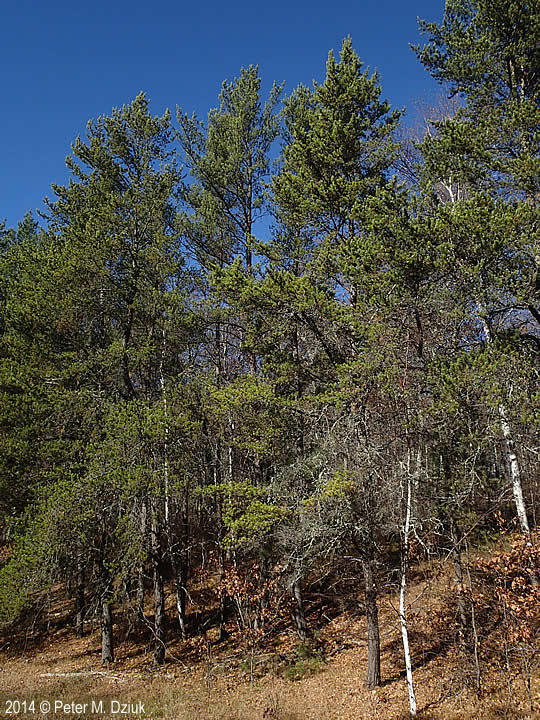
Jack pines are predominant in the region; tenacious, ‘the first conifers to reestablish themselves after a fire” (16), in their own way remarkable even as they are useless for lumber, short lived, and not at all the sorts of trees about which adjectives like ‘breathtaking’ circulate” (345) they are a loud testament to the violence that has generated them.
“the diminishment of this landscape mortified and disciplined me. Its scars will outlast me, bearing witness for decades beyond my death to the damage done here” (20) But still: the love emerges, painfully, gradually, intimately. (345)
She experiences the landscape in terms of loss and change, rather than idyll and replacement. It is all personal; it is all about developing a way of making meaning that recognizes the singularities of the past and takes responsibility for the future in the midst of intimate devastation. (345)
‘Environmental hubris’—fly fishing, the introduction of non-native fish to the river, changing temperatures of rivers caused by logging and diversion; specific policies, politics, and technologies that have had effects on the rivers, the fish, and the other species throughout the river and the north woods (356)
A refusal to demonize the ‘invasive’ species; Grover herself is ‘invasive’ both culturally and personally (white settlers and big city imports) thus her ethical claim is not for purity but for an active and thoughtful remembering of historical violences in the midst of ongoing necessity of movement and change (346)
Seek relationships with Clear-cuts and landfills in order to bring to the foreground the massive weight of human devastation of the natural world; “a discerning eye can see how unstewarded most of this land has been. The charm lies in finding ways to love with such loss and pull from it what beauties remain” (81) (347)
“she does not romanticize the dying even as she might mourn their loss to the world; instead [through Grover] we witness each loss as particular, irrevocable, and concrete: she is their witness” (347)
Can we learn to see these landscapes as creation as well as destruction?
Rather than mourn the loss of the pristine, she carefully cultivates an attitude of appreciation of what lies before her, beyond the aesthetic wilderness to the intricate details of human interactions with the species and landscapes of the region. In this manner she comes to be able to find the beauty in, for example, landfills and clearcuts; far from naivete or technophilia, this ability is grounded in a commitment to recognizing the simultaneity of death and life in these landscapes, the glut of aspen-loving birds in the clear-cut, the swallows, turkey vultures, and bald eagles near the landfill.
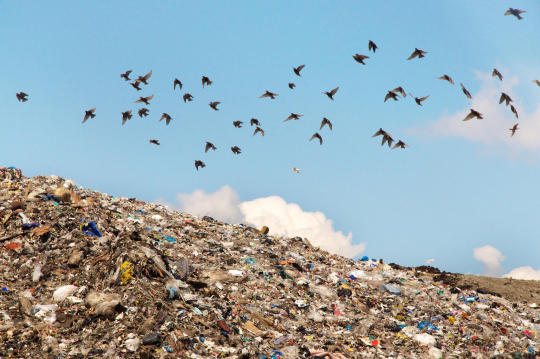
--
It is necessary to face our fear and pain; we have to make room in our relationships with the natural world, queer and otherwise, for the recognition that that is what we might be feeling in the first place (355)
#queer ecologies: sex nature politics desire#queer ecology#queer theory#ecofeminism#critical ecology#environmental politics#ecology#aids crisis#mourning nature#ecogrief#colonialism#environmental degradation#melancholia#queer politics#melancholy#environmentalism#climate and environment#environmental justice#forests
47 notes
·
View notes
Text
Amazon New Jobs Work from Home Part Time & Full Time Jobs 01 May 2024
Dreaming of a flexible job with great pay? Amazon wants YOU! Urgent staff needed for remote positions. Apply today for weekly payment and high salary, This is job only for USA. ✅Here are all details
#amazonjobs#remotework#remotejobs#amazoncareers#earth day#climate change#environment#global warming#hope#climate anxiety#climate grief#ecoanxiety#ecogrief
0 notes
Link
4 notes
·
View notes
Text
Feds struggle to fill seats for employee 'ecogrief' training#Feds #struggle #fill #seats #employee #ecogrief #training
The Fish and Wildlife Service’s “ecogrief” training is more widespread than originally thought, having already been conducted in “many” of the agency’s regions, according to an internal email obtained by The Washington Times.
But the agency has been struggling to fill all the seats in its upcoming round of training on Friday, with 10 of the 35 slots unclaimed as of Tuesday.
“We still have some…

View On WordPress
0 notes
Text
https://www.thegatewaypundit.com/2023/02/interior-department-now-offering-ecogrief-training-employees/
View On WordPress
0 notes
Video
youtube
Have you heard about eco-grief or climate-grief? The feeling that the world is burning and it’s overwhelming to the point of causing anxiety? I talk about that some in this video and my own experience with environmentalism and eco-grief.
8 notes
·
View notes
Photo
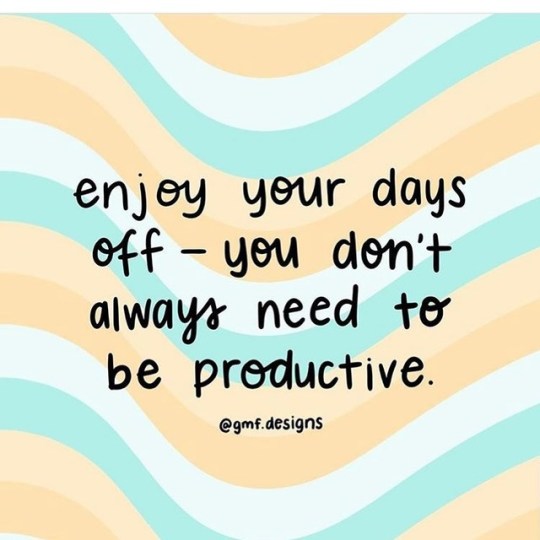
🦚🧠 . . . . . . . . . . . #coaching #healthcoach #wellnesscoach #lifecoach #mentalhealth #ecotherapy #ecopsychology #geropsychology #psychology #mentalwellness #selfcare #healing #nature #ecoanxiety #ecogrief #olderadults #wellbeing #health #holistic #counseling #therapy #harmony #spirituality #selfhelp #selfimprovement #natureheals #mindfulness #meditation #success #peace https://www.instagram.com/p/B1DO28ngJqr/?igshid=lyoh5ccdz42s
#coaching#healthcoach#wellnesscoach#lifecoach#mentalhealth#ecotherapy#ecopsychology#geropsychology#psychology#mentalwellness#selfcare#healing#nature#ecoanxiety#ecogrief#olderadults#wellbeing#health#holistic#counseling#therapy#harmony#spirituality#selfhelp#selfimprovement#natureheals#mindfulness#meditation#success#peace
1 note
·
View note
Link
0 notes
Note
for Spotify wrapped: 20, 30, 40, 50 !
thank you for asking! gonna put this under a cut so I don't have to worry about being long-winded, I have too much to say about music I love
20: I adore dodie and Build a Problem was absolutely worth the wait! this is probably my favorite song from the album because it's just so catchy and so different from her usual style (which I also love, don't get me wrong) and they really knocked it out of the park. I remember having it stuck in my head when I went on a Mothers' Day hike with my moms, two days after BAP came out, and just having the best time. I get to see dodie in concert on my birthday next year and it's gonna be so much fun, especially bopping along to this
30: my url is a BDG reference, so of course I listen to The Altogether :) this song helped me survive living in the middle of nowhere for 8 months, as did the rest of this playlist:
40: I have other top artists (Hozier, Phoebe Bridgers, Lorde) who make music for the end of the world. but Adam Melchor is the only one who does it with a smile, writing songs that make me feel like finally someone gets that we're living through the apocalypse but in a chill, friendly way. I'm a climate justice activist and a young person and I'm gonna end up finishing half of my bachelor's degree in a global pandemic. so it's such a relief to have music that gently validates the burnout/anxiety/ecogrief of living through these soul-destroying times AND ALSO invigorates me to keep fighting, keep organizing, keep living through the end of the world and doing what I can to make it a tiny bit more livable. I've been deeply skeptical of pandemic art since the beginning, and I maintain that the only good examples of it so far are Inside (note that Bo Burnham did not make it anywhere into my spotify wrapped), the joke at the very end of the season 2 finale of The Other Two, and "Two Songs for Now" by Adam Melchor. although season 15 of iasip is premiering tonight so hopefully I'll be adding that to the list 👀
50: god I love this song. and the entire boygenius EP. and their cover of "Cowboy Take Me Away," which incidentally is #71 on my top 100 playlist (the original by The Chicks). the beauty of their individual voices (literal and metaphorical) on each verse. the beauty of the harmonies on the chorus. so simple, so profound, so lovely. really wish I had gotten a chance to see them in concert, I think being in the same room as this song performed live would have been an incredible spiritual experience.
0 notes
Link
It took 90 days for the fungi to degrade 27 per cent of the plastic tested, and about 140 days to completely break it down, after the samples were exposed to ultraviolet rays or heat.
Chemical engineering professor Ali Abbas, who supervised the research team, said the findings were significant.
"It's the highest degradation rate reported in the literature that we know in the world," the professor said.
From ABC News Australia
#plastic#plastic pollution#plastic recycling#trash#environment#hope#good news#technology#science#ecoanxiety#environmental grief#environmental anxiety#ecogrief
3K notes
·
View notes
Text

Chap 12. Melancholy Natures, Queer Ecologies by Catriona Mortimer-Sandilands [part 1]
“One of the penalties of an ecological education is that one lives alone in a world of wounds.”—Aldo Leopold
“At the heart of the modern age is a core of grief. At some level, we’re aware that something terrible is happening, that we humans are laying waste to our natural inheritance. A great sorrow arises as we witness the changes in our atmosphere, the waste of resources and the consequent pollution, the ongoing deforestation and destruction of fisheries, the rapidly spreading deserts, and the mass extinction of species.”(331)
The author believes that this ‘core of grief’ is melancholia, a state of suspended mourning in which the object of loss if very real but psychically ‘ungrievable’ within the confines of a society that cannot acknowledge unhuman beings, natural environments, and ecological processes as appropriate objects for genuine grief (333)
“It is necessary to face our fear and our pain, and to go through the process of grieving, because the alternative is a sorrow deeper still: the loss of meaning. To live authentically in this time, we must allow ourselves to feel the magnitude of our human predicament” (332) (Anderson 2001, “The World is Dying—and So Are You”)
“Ecological grieving” vs “nature-nostalgia”
“was this [place] just the same sad story, the one about human violence, the endless damage we do, may always have done, to ourselves, everything around us? Yes, I thought, but that didn’t make it simple. I couldn’t even tell myself that if humans are violent and destructive, the natural world, at least, is peaceful and enduring, not while I lay with my back pressed tightly against the remnants of enormous volcanic explosions and the cold winter earth stole my own body’s warmth.” (Campbell 2003, 5)
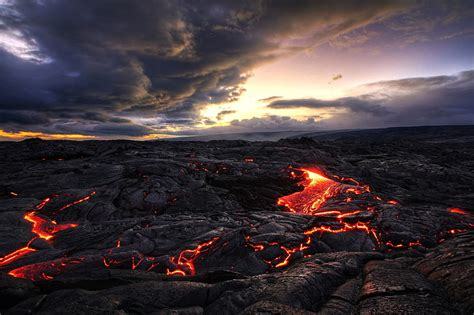
“in late capitalism, nature-nostalgia—ecotourist pilgrimages to endangered wildernesses, documentaries of dying peoples and places, even environmentalist campaigns to ‘save’ particular habitats or species against the onslaught of development—are exactly a form of melancholy nature, in that they incorporate environmental destruction into the ongoing workings of commodity capitalism (333)
Grieving the ungrievable: how does one mourn in the midst of a culture that finds it almost impossible to recognize the value of what has been lost? (333)
Melancholia here is not a failed or inadequate mourning. Melancholia is a form of preservation of life—a life, unlike the one offered for sale in ecotourist spectacle, is already gone, but whose ghost propels a changed understanding of the present. (333)

[coming to love and understand devastated landscapes] transform […] melancholic attachments into a principles and public recognition of the ongoing loss of nature, and also of the ways in which that loss is constitutive of their environmental relationships on a daily basis… (334) and thus point us towards a queer ecology that both emerges from and politicizes melancholy natures, incorporating the experiences of a “world of wounds” into an ethical stance that resists, rather than fostering, fetish (334)
#queer ecology#melancholia#critical ecology#environmental politics#queer ecologies: sex nature politics desire#nature nostalgia#capitalism#ecotourism#ecogrief#queer theory#ecofeminism#mourning for nature#mourning#ecology#queer history
8 notes
·
View notes
Photo
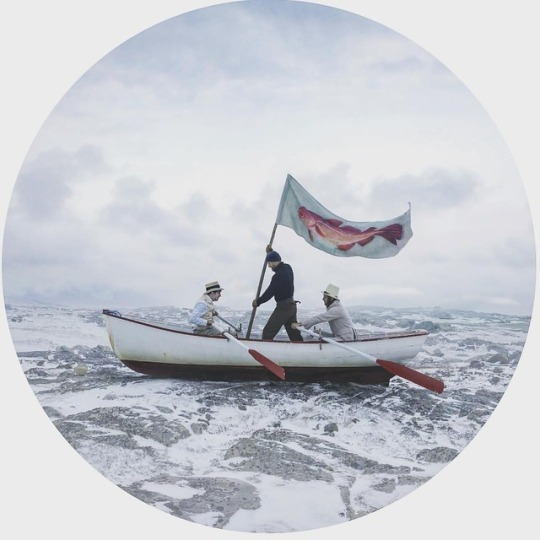
It can be difficult to catch codfish in a petrified sea. Always honored to appear in a @kahnselesnick image✨📸🌊✨ Repost : "Adrift on the Petrified Ocean. @nomadicschoolofwonder @fogoislandinn #truppefledermaus #carnivalattheendoftheworld #bookoffate #ecogrief #nomorefish #fogoisland Thanks to @nadinewellss and the mighty @kieljohnson (at Los Angeles, California) https://www.instagram.com/p/Brsf8l6FrH6/?utm_source=ig_tumblr_share&igshid=18gs0cvcda5hu
0 notes
Link
2 notes
·
View notes
Text
Wallowing in wokeism: Biden offers feds 'ecogrief' counseling for 'emotional' toll of climate change#Wallowing #wokeism #Biden #offers #feds #ecogrief #counseling #emotional #toll #climate #change
The U.S. Fish and Wildlife Service is offering training to employees in Texas, Oklahoma, New Mexico, and Arizona on “ecogrief.” The psychological neologism can range in meaning from the feeling of anticipated loss to outright trauma from climate change.
Reactions to the ‘ecogrief’ training ran the gamut:
— “This 4-hour workshop seeks to normalize the wide range of emotional responses that…

View On WordPress
0 notes